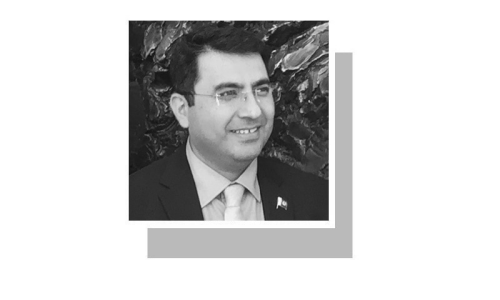The recently passed 26th Amendment to the Constitution has sparked heated debates, especially concerning its potential to curb judicial powers. However, amid the fervour over the changes, there is one provision that has largely flown under the radar: the provision to eliminate Riba (interest) by 2028.
Before the amendment, Article 38(f) of the Constitution directed the state to eliminate riba “as early as possible.” However, this amendment has introduced a specific deadline: January 1 2028. The shift in the provision follows the 2022 ruling by the Federal Shariat Court (FSC), which ordered the government to eradicate riba by December 31, 2027. In response, appeals were filed by the State Bank, the National Bank of Pakistan (NBP), and three private banks, questioning the feasibility and immediate implications of the decision. However, after the then finance minister Ishaq Dar expressed the government’s intent to comply, the State Bank and NBP withdrew their appeals, though the private banks’ appeals remain.
The provision raises critical questions: Is a riba-free financial system realistic within Pakistan’s heavily interest-based economy? An economy that is deeply integrated into the global financial system based on riba. Is the government genuinely committed to eliminating riba? Or is this provision primarily a symbolic gesture aimed at appeasing the popular sentiment?
To begin with, the placement of the amendment within Article 38, which is under the “Principles of Policy” chapter, calls for closer examination. The Principles of Policy serve as general guidelines for the state rather than enforceable laws. Violations of these principles cannot even be challenged in courts of law. This means that even if riba continues post-2028, or if some legislation is enacted that allows or supports riba, those actions would remain legally unassailable.
The choice to situate this provision within the Principles of Policy rather than in a more binding section of the Constitution suggests a pragmatic awareness within the government. Given the complexities of the current economic and financial framework, in which interest-based borrowing and lending are deeply entrenched, is the complete eradication of riba more aspirational than achievable?
Increased demand and profitability of Islamic banks are giving hope that rendering Pakistan’s financial system shariah-complaint by 2028 is achievable
While the government has left room for flexibility by not making the elimination of riba legally binding, examining the economic and financial realities is essential to assess whether such a move is feasible. Following the decision of the FSC issued in 2022, the State Bank intensified its efforts to transform the country’s banking system to align with Islamic principles. Leading financial institutions, including major banks like HBL, began establishing Islamic branches, with a view toward full conversion to Shariah-compliant operations by 2027.
The shift has also increasingly inspired consumers to engage in Shariah-compliant financing rather than conventional banking for their everyday needs. The trend is reflected in the sustained growth in profitability of Meezan Bank, which is one of the most prominent Islamic banks in the country.
In the last fiscal year, Meezan Bank reported an after-tax profit of Rs 84.5 billion ($305 million), marking an 88 per cent increase over the previous year. This profit was way higher than banking giants like HBL and NBP, which have a much higher asset base than Meezan Bank. The increased demand and profitability of Islamic banks is giving hopes that the national objective of rendering Pakistan’s financial system riba-free by 2028 is achievable.
The Islamic banking sector has grown significantly in asset value since 2002, with the State Bank placing renewed emphasis on accelerating the sector’s expansion in 2022. However, achieving a fully interest-free economic system remains a challenge, as international borrowing is still predominantly interest-based.
After the ruling by the FSC in 2022, the government has focused on issuing Sukuk (Islamic financial certificates) as an alternative to conventional interest-bearing debt. This shift has already raised Sukuk-based borrowing to Rs6.5 trillion by 2023, signalling a substantial realignment toward Shariah-compliant financing.
In addition, considerable anticipation surrounds the State Bank of Pakistan’s efforts to convert its Pakistan Investment Bonds to Sukuk. Once the debt is converted to asset-backed lending by the government and the State Bank, the prospects of a completely riba-free system will increase significantly.
Overall, the initiatives led by the government and the State Bank are transforming Pakistan’s financial landscape. A riba-free banking environment by 2028 no longer seems like an ambitious, far-fetched ideal but rather an attainable goal. The outlook for Islamic Financial Institutions appears promising, strengthened by the FSC’s directives as well as the recent constitutional support in the form of the 26th Constitutional Amendment. However, the achievement of the goal remains an uphill battle that the government needs to fight with all intent and seriousness.
Mohammad Ibrahim Abro is a lawyer based in Lahore, and Areej Wasi is a researcher currently working on a book on Islamic finance
Published in Dawn, The Business and Finance Weekly, November 25th, 2024













































Dear visitor, the comments section is undergoing an overhaul and will return soon.